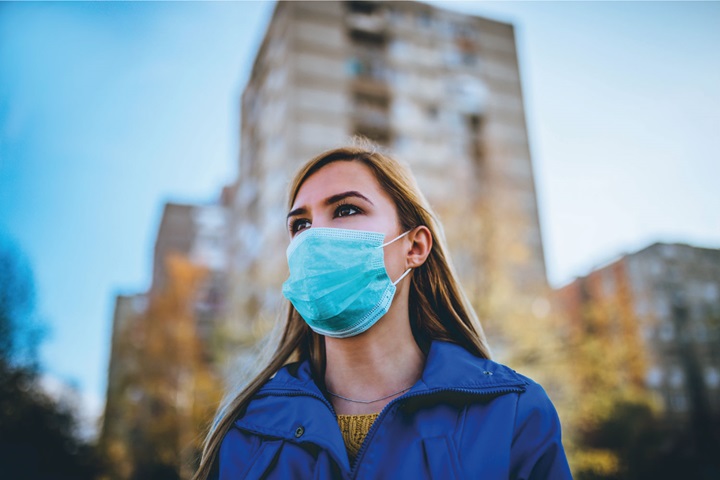As governments around the world relax restrictions, people have remained steadfast in their determination to protect themselves and their loved ones, while safeguarding their longer-term financial security.
New insights derived from interviews with more than 100,000 people around the world in Wave 7 of Kantar’s COVID-19 Barometer highlight growing concerns. Findings indicate a global 9% decrease in acceptance of government measures to relax restrictions from 28% in Wave 5 to 19% in Wave 7. Hesitation appears to stem from a discord between peoples’ beliefs around safety and governments’ reassurances that a return to ‘normal’ life is prudent. Unsurprisingly, people were even less supportive of a full reopening of social spaces, reflected in a 10% drop from 27% in Wave 5, to 17% in Wave 7.
In lockstep with these attitudes, government disapproval ratings are also on the increase with 29% unhappy globally. Kantar found higher numbers in harder hit countries, such as the USA where dissatisfaction has risen from 36% (Wave 4) to 48% (Wave 7).
‘Thanks, but no thanks’
A lack of alignment between popular sentiment and government efforts to resume daily functioning of the economy is being met with resistance. Levels of fear remain high, with half (51%) of people saying that they are very scared about the situation. In Spain, Italy and France, even greater worry about the future pushes these numbers up to 72%, 65% and 61%, respectively. Distrustful of government initiatives to reopen economies as soon as possible, people believe that returning to work, shopping and civic life may not be in their personal best interests. Residents are reluctant to return to ‘normal’ activities with just 36% willing to travel on public transport compared to 41% in July, and increasing numbers of people delaying returning to the gym (70%), religious sites 67% and restaurants / bars (56%) for at least one more month.
In many countries, policymaker concerns over potential non-compliance resulting from extending lockdown measures look unfounded, as people are willingly choosing to not take advantage of relaxing government restrictions. It appears that globally populations are more invested in positive outcomes and that some governments may have underestimated the will of the people.
While just 7% of people are explicitly distrustful of their government’s judgement, lingering concern for one’s personal health is the greatest worry (29%), preventing people from returning to ‘normal’ activities. Governments relaxing restrictions and reopening public places is insufficient to adequately reassure people of their safety, the COVID-19 Barometer findings suggest that only tangible / visible measures will suffice. Topping the list were vaccinations with 54%, required facemasks with 45%, continued social distancing with 44% and regular sterilisation of public surfaces with 42%.
Power to the people
Clearly, people still feel vulnerable. Even though fewer people are feeling the daily impacts of the coronavirus compared to previous waves, levels of overall concern have grown for the first time in months to 70%. Globally, 45% are worried about falling sick compared to 42% in Wave 6. People have become used to the situation, but it is still far from ‘normal’.
With 73% worried about a second wave, residents around the world appear to be taking responsibility for themselves, alongside greater concerns for society’s health and longer-term interests. Equal numbers (73%) have or expect their personal finances to be damaged by the pandemic, forcing changes around priorities with 64% of people saying that they feel the need to be more proactive about financial planning. With tighter household budgets, more people are also making changes to how they shop: 67% are now paying attention to prices at shelf, up from 56% in Wave 2 and 55% paying more attention to products on sale, up from 44% in Wave 2.
Shifting priorities are also leading to a renewed focus on personal values around ‘what is really important’ in life. Thirty percent (30%) of people say they want to focus more on loved ones. Twenty-nine (29%) want to focus on future challenges. And 27% say they just want to enjoy life. Reluctant to return to the rat race of intensive work, 23% want to embrace a better work / life balance.
Can brands fill the opportunity gap left by governments?
The pandemic seems to have ‘woken’ society to the wider context of existence. Progressively, populations are feeling that governments are not doing enough to manage the situation, now sitting at 39%. By extension, deeper concerns for oneself and loved ones are stretching to society as a whole. In the absence of trusted government leadership, people are also looking to brands to take the initiative and fill the gap. Topping the list of consumer expectations at 25% (vs 17% in Wave 2) is that brands lead by example and guide change.
Here, we see broader societal concerns taking deeper root in global environmental matters, which after individual and familial concerns, top global personal agendas. The COVID-19 Barometer found that 51% think that environmental issues remain important, while an additional 22% think that environmental issues are more critical than ever. Ushered in by the clearer skies of the pandemic, pollution and waste reduction are the most concerning, followed closely by product sustainability and local production.
The Kantar Coronavirus Tribes serve as a solid starting point for brands looking to navigate the uncertain waters of pandemic recovery, including those looking to address growing environmental concerns, universal across all segments.
As subsequent waves of coronavirus are poised to wash over societies around the world, businesses would be wise to heed the call-to-action from society.
Get in touch for more information on the COVID-19 Barometer and the Coronavirus Tribes.

